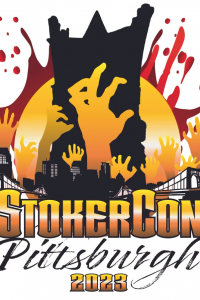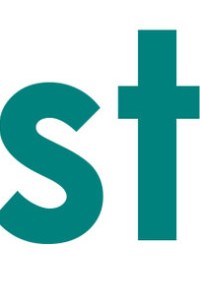SFRA/GF: Disruptive Imaginations
Report on the Disruptive Imaginations Conference
by Sylvia Spruck Wrigley
From August 15-19, 2023, the Science Fiction Research Association (SFRA) and the Gesellschaft für Fantastikforschung (GfF) came together for a joint annual conference: Disruptive Imaginations. The event was hybrid, with the in-person aspect hosted by Technische Universität Dresden in Germany.
Julia Gaterman and Moritz Ingwersen, the chair of North American Literature and Future Studies, organised the event, which was infused with a passion for science fiction studies. Nearly 300 attendees from 36 countries attended the conference, leading to eight simultaneous streams (seven in English and one in German) for most of the week.
There were 87 panels on a massively diverse set of subjects, ranging from disruptions within the patriarchy, poetry, ableism, and eschatological themes to artificial intelligence, vegetal weirdlings, and explorations of indigenous futurisms. A recurring complaint in the corridors was that it was impossible to attend all of the exciting panels: there were simply too many.
The event featured three keynote speakers: Lou Cornum of New York University (‘‘Lunar Landings: How to (Not) Approach the Moon’’), Priscilla Layne of University of North Carolina (‘‘Utopias of Restorative Justice: Speculative Fiction, Gender and Violence in Schwarz Rund’s Biskaya and Sharon Dodua Otoo’s Ada’s Realm’’) and David M. Higgins from Embry-Riddle Aeronautical University (‘‘Alt-History and Reactionary Worldbuilding’’).
Special programming included two public-facing events at the German Hygiene Museum. Every seat was taken for ‘‘The Legacy of Science Fiction in the GDR’’, which featured a roundtable of GDR authors, activists, scholars and publishers led in discussion by Sonja Fritzsche, followed by a film screening of Elomea (1972). The following evening, the ‘‘Progessive Fantastic’’ was also very well attended, and featured a roundtable discussion of German authors curated by Lars Schmeink and a performance reading.
A favourite after-hours event was the night at Technische Sammlungen Dresden, the Dresden Museum of Science and Technology, with a special out-of-hours opening which allowed the conference attendees to explore the museum displays in the quiet of the evening. I found myself searching the display of computers for the first one I had owned, copying programs from a magazine I received each month in the mail. A bespectacled man joined me to look, explaining that he was trying to find a computer that marked the year of his birth.
They were the same machine.
Later that evening, we were invited to the interactive performances of three Germany-based international artists – Irina Gheorghe, Emma Waltraud Howes, and Justin F. Kennedy, who used the museum space for dynamic and provocative performances.
The event also included the SFRA banquet and awards ceremony. Of particular interest, as always, was the SFRA Innovative Research Award, which went to Paweł Frelik for his essay ‘‘Power Games: Towards the Rhetoric of Energy in Speculative Video Games’’, from Er(r)go. Teoria – Literatura – Kultura 44 (2022). The selection committee also awarded an honorable mention to Nora Castle for her essay ‘‘In Vitro Meat: Contemporary Narratives of Cultured Flesh’’ from Extrapolation 63.2 (2022).
An unexpected highlight throughout the week was the vegetarian and vegan meals offered to keep our energy up through the packed schedule. The day started with pastries and fresh coffee before the morning sessions, leading up to a grand spread of hot and cold food at lunchtime. A special treat was the very German late-afternoon break for cake and coffee. The closest thing to a complaint that I heard was from one German professor who plaintively asked what the point of vegan currywurst was. ‘‘The spicy sauce,’’ offered another colleague who had just gone back for seconds.
Near the food was a remarkable display entitled ‘‘Objects of a Past Future’’, a collection of curious objects from the University’s collection, with a special request for attendees to leave notes guessing the possible functions and context of the artefacts. This led to a plethora of post-it notes being left all over the wall offering a mix of serious ideas and SF story starters.
Disruptive Imaginations was more than just a conference; it was a reminder of the magic that happens when curious minds come together. The 2024 annual meeting, Transitions, will take place next May 7-11 in Tartu, Estonia, tying in with the Tartu International Literary Festival taking place the same week. Anindita Banerjee (Cornell University) and Bogi Takács (University of Kansas) are confirmed as keynote speakers. The call for papers will be released shortly, with particular interest in papers that resonate with the overall conference theme: transitions as the thematic, narrative, formal, historical, and philosophical driving force behind science fiction. The full details will be listed on the conference website at <sfra2024.ut.ee> or find out more about Tartu’s literary festival at <kirjandusfestival. tartu.ee/en/>.
This report and more like it in the November 2023 issue of Locus.
Photos by Anna Kurowicka and Johanna Mehl
 While you are here, please take a moment to support Locus with a one-time or recurring donation. We rely on reader donations to keep the magazine and site going, and would like to keep the site paywall free, but WE NEED YOUR FINANCIAL SUPPORT to continue quality coverage of the science fiction and fantasy field.
While you are here, please take a moment to support Locus with a one-time or recurring donation. We rely on reader donations to keep the magazine and site going, and would like to keep the site paywall free, but WE NEED YOUR FINANCIAL SUPPORT to continue quality coverage of the science fiction and fantasy field.
©Locus Magazine. Copyrighted material may not be republished without permission of LSFF.










